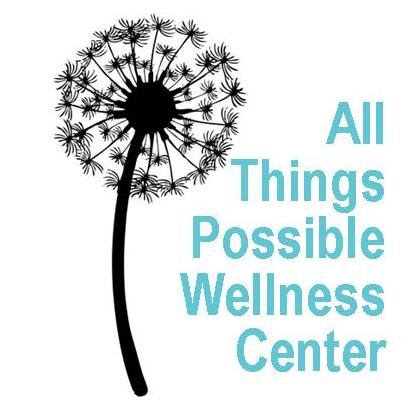Supporting those with Eating Disorders this Holiday Season

Lena Canu, MA, LLC
The end of the year has gained its notorious title as “the most wonderful time of the year” as we find ourselves being surrounded by colorful lights, seasonal activities, and our loved ones. Though this time each year fills numerous people with joy and much-needed relaxation, the holidays can be a trying time for those experiencing or recovering from an eating disorder, often magnifying their personal struggle.
Festive occasions- which tend to center around food-can present high emotions or intense feelings of shame and guilt for those living with an ED. The act of gathering around a large meal can be a trigger that allows an individual to easily fall into their eating disorder behaviors which could include binging, purging, and restricting food.
Though an individual’s experience with disordered eating is unique to their own, recognizing some of their common struggles can be insightful for family members to begin to know how to support them this holiday season. Some concerns that those experiencing an ED may be struggling with this time of year may include:
-They may believe eating a larger holiday meal and bigger portions will make them gain weight.
-They may feel pressure to excessively exercise following the holiday to burn off the calories from their holiday dinner.
-They may be experiencing tremendous guilt about any kind of indulgence they partake in.
-They may be immobilized by their fear foods and food rules.
-They me be experiencing negative self-talk and the presence of “fear foods” that don’t abide by their food rules (ex. I can’t eat the stuffing, it’s not healthy”)
-They may be feeling pressure to eat food cooked by family members and experience constant worry of offending them if they do not choose to eat the food they took time to prepare.
-They may be feeling the urge to body check or weigh themself on a scale immediately following holiday meal.
-They may have more prevalent urges to binge because many of the food and sweets associated with holiday celebrations are typically not “allowed” during other days of the year for their ED brain.
-They may be experiencing significant shame and negativity about their loss of self-control following a binge.
-There may be a restriction of meals leading up to the holiday so they are “allowed” to indulge in holiday meals
-There may be a restriction of meals following the holiday events to “compensate” for indulgence in holiday meals.
In addition to the emphasis placed on food, the holidays are often the one time of year in which close and distant relatives can reconnect and enjoy time together. For an individual struggling with an ED, this excitement to socialize may be clouded with fear. The aspect of “catching up” with relatives can become a large aspect of added stress due to the possibility of comments on appearance and those who are unaware of their struggles with food.
Experiencing any of these struggles may feel isolating for our loved ones with an eating disorder. Here are 5 helpful suggestions to support your loved ones who are struggling during the holiday season:
1. Incorporate non-food centering activities: Allow the primary focus of the holiday to be on your loved ones and the valued time shared together rather than the prominent meal. Ideas of non-food centering activities can look like: watching a Christmas movie together, playing a board game, a white elephant gift exchange, decorating the tree, painting a craft, wrapping/opening gifts, building a snowman, caroling.
2. Have prior conversations: Talk to your loved one with an ED on how they would prefer to create their plate or how they would like food to be presented to them. Is it helpful for them to be served by others VS. is it helpful for them to serve their own food? Is it helpful for them if the food is placed on a countertop VS. is it helpful if multiple dishes are placed directly in front of them at one time on the dining table?
3. Avoid appearance/body comments: Try to decrease and avoid comments about physical appearance, clothing sizes, body weight and shape, and diet talk. These comments may look something like: “You’ve lost weight since the last time I saw you; you look so good!” or “I’m going to be starting a new diet in January for my new year’s resolution and get on track”. It’s easy to make remarks about how “stuffed” you are or how you’re going to need a workout after that turkey dinner (we all do it)! For our loved ones with an eating disorder however, these kinds of comments can cause great anxiety.
4. Communicate Openly and non-judgmentally: Create an open and non-judgmental space for your loved one to express their emotions. Ask how they are feeling, what they need, and whether there is anything you can do to help. You can offer hugs or kind words, or make a more subtle gesture like making sure they’re included in activities and conversations that can help take their mind off the food which surrounds them.
5. Educate Yourself and Others: Take time to educate yourself about eating disorders, their complexities, and available resources. Share this knowledge with friends and family members to foster a collective supportive environment. Understanding the challenges your loved one is facing can lead to greater empathy and informed support not just on the holiday, but year-round.
Above all, remember that it is important for family and friends to not feel responsible or at fault for the eating disorder. Everyone experiencing an ED is undergoing their own journey and eating disorders can be very complex illnesses. While we may not be able to control our loved ones eating disorder, we do have the power to control our awareness, thoughtfulness, and compassion. It is this kind of support and source of comfort that is the best gift you could give to those you love and care for struggling this holiday season.
If you are experiencing ED symptoms or want to further support someone you know, clinicians All Things Possible Wellness Center may help assist in your journey.
